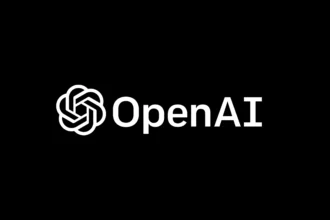Can OpenAI Generate Code? A Deep Dive into AI-Powered Programming
In the rapidly evolving tech landscape, artificial intelligence has emerged as a transformative force. One of the questions that often bubbles to the surface is, “Can OpenAI generate code?” This intriguing query paves the way for exploring the capabilities and potential of AI in the realm of software development. As we unpack this question, we will delve into how OpenAI achieves this feat, the implications for programmers, and the future of coding in an AI-enhanced world.
Table of Contents
ToggleUnderstanding the Magic Behind OpenAI
At the core of OpenAI’s ability to generate code lies a sophisticated machine learning model known as GPT-3 (Generative Pre-trained Transformer 3). This marvel of technology has been trained on a vast corpus of text data, which includes everything from literature to scientific articles, and notably, a substantial amount of source code from various programming languages.
The power of GPT-3 doesn’t simply stem from its massive training dataset; it’s also about its underlying architecture, which is designed to understand context and make connections between ideas seamlessly. When presented with a prompt that suggests a coding task, GPT-3 draws from this reservoir of learned knowledge, essentially predicting what the next chunk of code should be based on the context provided.
Consider this—imagine having a smart assistant at your fingertips that can help you craft code snippets, debug programs, or even teach you new programming languages. That’s effectively what OpenAI offers when it comes to code generation. The AI model gives users the ability to enter a prompt, and, in real-time, the system produces coherent and contextually relevant code.
The Nuts and Bolts: How Does It Work?
You might be wondering, “How exactly does OpenAI generate code?” Let’s break it down step by step.
- Input Prompt: The process starts with a user input—this could be a specific coding question, a function description, or even just a desire to create something particular in code. For instance, you might input, “Generate a Python function to calculate the Fibonacci sequence.”
- Model Processing: Once prompted, OpenAI’s model processes this query. It utilizes its extensive training to access relevant patterns and examples from its knowledge base.
- Code Generation: The AI then generates a response. For our earlier example, the expected output might look something like this:
def fibonacci(n): a, b = 0, 1 for _ in range(n): yield a a, b = b, a + b
This code snippet exemplifies how efficiently OpenAI can respond to specific programming requests.
The Advantages of OpenAI in Code Generation
Now that we have a foundational understanding of how OpenAI works, let’s explore the practical benefits of utilizing this technology in software development.
1. Increased Productivity:
Imagine drastically reducing the time it takes to write code. With OpenAI, developers can automate mundane tasks, generate boilerplate code, and experiment with unique solutions without getting bogged down by the nitty-gritty details. Whether you need a REST API built for a project or are just looking to speed up your coding process, AI can turbocharge your workflow.
2. Learning Resource:
For those new to programming, OpenAI’s capability to generate code serves as an invaluable educational tool. Beginners can request code for a given task, review the output, and learn different programming paradigms and best practices through real examples. This hands-on approach helps demystify coding effectively.
3. Prototyping Ideas:
Developers can swiftly prototype ideas without committing hours to crafting functional code. If you need an MVP (minimum viable product) or want to visualize a project concept, OpenAI can whip up functional code quickly, providing a robust starting point for further development.
Limitations of AI-Generated Code
While the prospects of using OpenAI for code generation sound rosy, it’s essential to consider the limitations and caveats that accompany this revolutionary tool.
1. Understanding Context:
OpenAI’s code generation abilities hinge upon accurately interpreting the context provided in the input prompt. Poorly phrased or vague prompts can lead to subpar code that doesn’t meet the user’s expectations. Thus, it’s crucial to master the art of prompt writing to obtain the best results.
2. Code Quality and Optimization:
While GPT-3 can generate functional code, it may not always produce the most optimized or secure code. This emphasizes the role of human oversight—developers need to review, debug, and refine AI-generated code to ensure it meets quality standards and is free of vulnerabilities.
3. Lack of Real-World Experience:
OpenAI lacks real-world experience with projects, frameworks, and libraries that go beyond the training data. As a result, the model might not be aware of the latest coding standards, technologies, or recent updates within various programming languages. Users must stay up-to-date themselves and incorporate these into their development practices.
Practical Applications of OpenAI in Coding
As we continue this exploration of OpenAI’s potential, let’s examine some specific use cases where code generation can be particularly beneficial.
1. Automated Testing:
Automating the creation of tests for software applications can save a significant amount of development time. By providing specifications of an application to OpenAI, developers can quickly generate tests that ensure the code behaves as expected, promoting reliability and consistency in the software lifecycle.
2. Language Translation:
Cross-language translation is another arena where OpenAI excels. By inputting code snippets written in one programming language, developers can request a complete translation into another language, facilitating the adoption of diverse coding practices and empowering teams working on heterogeneous software stacks.
3. Documentation Generation:
Generating documentation is often viewed as a tedious yet essential task for developers. OpenAI can assist in creating clear, concise documentation based on the code provided, elucidating functions, methods, and classes. This gives developers and stakeholders a clearer understanding of an application’s design.
The Future of Coding with OpenAI
As we glance into the future of coding, it becomes evident that the integration of OpenAI in the development process is likely to revolutionize how we approach software programming. Imagine a scenario where developers can collaborate with AI partners to brainstorm, improve code quality, and refine solutions.
1. Extensive Collaboration:
The synergy between human programmers and AI can lead to unprecedented innovation. With AI handling repetitive tasks and providing insight, developers could focus their efforts on creative problem-solving and complex project requirements, redefining the role of the programmer.
2. Continuous Learning:
The constantly evolving nature of technology compels developers to stay updated with new languages, tools, and frameworks. OpenAI’s capabilities can provide continuous learning opportunities, helping developers harness its features to enhance their adaptability.
3. Expanding the Developer Community:
AI-generated code could make coding more accessible to people who might not have had the opportunity to learn programming. By lowering the barriers to entry, OpenAI can foster inclusivity, broadening the community and enhancing diversity within the tech landscape.
Conclusion: Embracing the Future of Code Generation
In summary, the question, “Can OpenAI generate code?” is not just a quizzical inquiry but a window into the future of programming. With a proven ability to generate code based on user prompts, OpenAI offers both novice and experienced developers a powerful tool for enhancing productivity, learning, and creativity. However, recognizing the limitations and the necessity for human oversight is equally important.
As technology continues to advance, embracing AI-driven coding becomes imperative. Developers who learn to harness the capabilities of OpenAI will undoubtedly hold a significant advantage in the fast-paced world of software development. As we look to the horizon, the synergy of human intellect and artificial intelligence has the potential to redefine the coding landscape for the better.
So, the next time you find yourself wrestling with a coding question or a frustrating bug, remember there’s a virtual assistant who just might have your back. OpenAI isn’t just generating code; it’s sparking innovation in the developer universe and paving the way for a bright future in technology.



